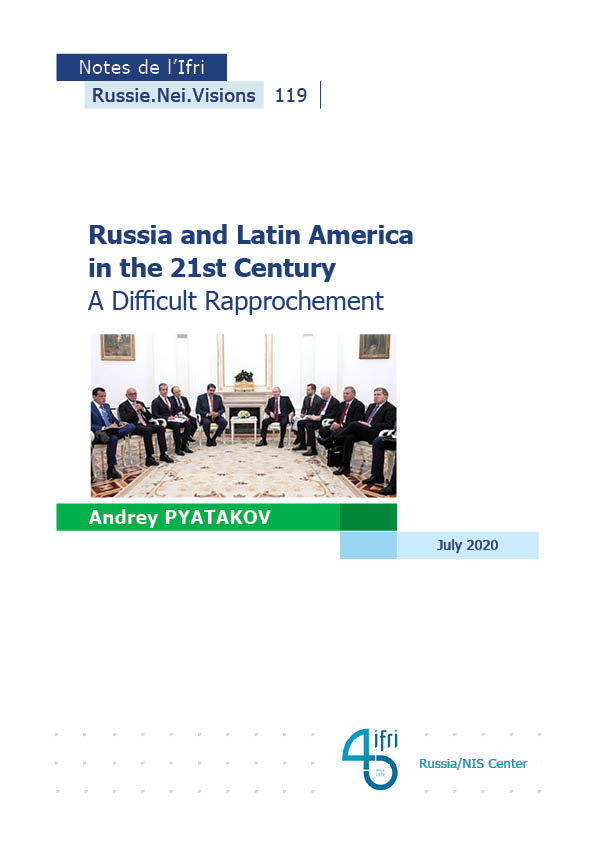Russia and Latin America in the 21st Century: A Difficult Rapprochement

This article analyses Russia’s relations with Latin America in the first two decades of the 21st century in the light of global political and economic processes.
Many different types of cooperation and interaction between Russia and the region are examined. The article places particular emphasis on military-technical cooperation as the “axis” of Russia’s bilateral relations with many countries, but other sectors, such as energy, infrastructure and transport, are also explored in detail. It finishes with a case study of Venezuela, which occupies a unique place in Russia’s relations with the region.
Relations between Russia and Latin America are developing against this backdrop of growing confrontation between the USA and China. Moscow’s policy is designed to infringe on both parties’ interests as little as possible. Russia is forced to be extremely careful in this regard. Such caution cannot but leave its mark on Russian policy in the region, which is very limited.
Andrey Pyatakov is the lead researcher at the Institute of Latin American Studies at the Russian Academy of Sciences in Moscow (ILA RAN).
Download the full analysis
This page contains only a summary of our work. If you would like to have access to all the information from our research on the subject, you can download the full version in PDF format.
Russia and Latin America in the 21st Century: A Difficult Rapprochement
Related centers and programs
Discover our other research centers and programsFind out more
Discover all our analysesThe Caspian Sea as an Emerging Energy Hub : Potentials and Limitations
This report analyzes the prospects of the Caspian Sea region — and its key actors except for Russia and Iran — becoming an important energy hub serving the needs of the European Union (EU).
The European Union's Strategic Test in Georgia
The political crisis brewing in Georgia is of an existential nature for the country. What is at stake is Georgia's future as a democratic and sovereign European nation (EU).
Commanders of Putin's Long War: Purged, Reshuffled and Disgruntled
The trend of reshuffling the Russian top military command in the course of a fast-evolving and far from successful war has progressed unevenly both across the Armed Forces’ structures and in time. The rationale for and timing of the abrupt cadre decisions made by Commander-in-Chief Putin often defy logical explanation, and the rare official clarifications are no more informative than the usual information blackout.
Russian Military Manpower After Two and a Half Years of War in Ukraine
In addition to a military victory in Ukraine, the Russian leadership is planning to build up sizable troop formations for a possible conflict with NATO in the Baltic region and the Kola Peninsula. In particular, current plans aim for the military manpower to grow by about 350,000, reaching a total of 1.5 million soldiers and commanders. In the context of the current conflict in Ukraine, this cannot be accomplished without a new wave of mass mobilization.









